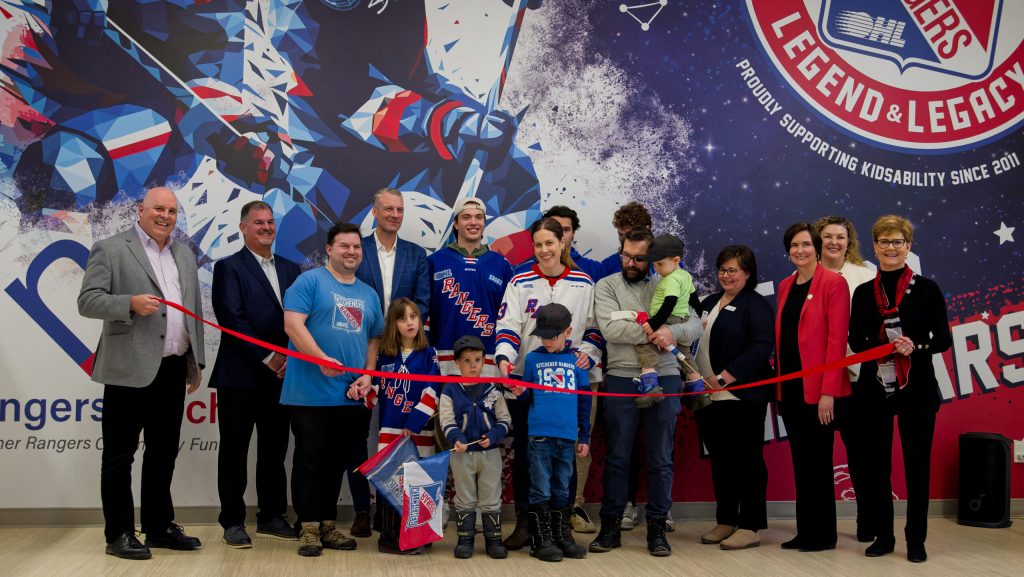K-W clothing brand raising awareness for men’s mental health
Posted May 27, 2022 05:15:00 PM.
A local clothing brand is raising awareness for men’s mental health, inspired by the owner’s own journey with bipolar disorder.
In 2019, Jonathan Sinden was on a family trip to Mexico for his 40th birthday. He had everything to be happy about: he was working a successful job, he and his partner’s families were blending, and they were on vacation. Everything was going well.
But he was numb to it all.
“I wasn’t present, I wasn’t engaged, which was alarming to my spouse,” he said. So, when they returned from Mexico, he sought out a doctor for help.
He expected it to be a chemical imbalance or something physical. But the doctor ran some tests, and diagnosed him with bipolar disorder.
“Once he came up with a diagnosis of bipolar, and really explained it in depth, and then referred me to a psychiatrist, I could really see the patterns [in my behaviour], the triggers, the ups and downs,” Sinden said.
Now that he could see the patterns, he could address them. Then, the fog cleared.
He had always wanted to open a business, “something that could bring good,” and now, it seemed like a real possibility.
So, in 2020, he launched Arthur Bane, combining his desire to start a business and to spark conversation around men’s mental health.
Before openly sharing his diagnosis, his partner affectionately called him a polar bear, which became a code word for his illness. So of course, it made sense for the logo of the brand to be a polar bear.
The name Arthur means “strong as a bear,” and Bane means “cause of great distress,” so the name and logo act as an abstract code to show support for mental health.
There are three different styles of apparel, depending on how bold or vague of a statement someone wants to make wearing it: one with a large logo and brand name, one with a more subtle logo and brand name, and one plain, “for if they want to support it, but they’re not ready to tell their story.”
To support their mission of raising awareness for men’s mental health, ten per cent of sales are donated to the HeadsUpGuys, an anonymous online resource designed for men and their families to prevent “the continued erosion of men’s mental health and deaths by suicide.”
“I thought I could try to relate to people, then try to get other men to take the lead, to know that it’s alright to not always be our best, to have internal struggles with mental health,” he said.
He chose apparel because he felt it could easily spark the conversation, and help men, and their families, better understand their diagnoses.
“Once you see something of that nature, and once you know what it is, that makes it pretty easy to open up and talk with somebody who might be struggling the same as you.”
And this is exactly what’s happened since he launched two years ago.
“Some of the people that have supported Arthur Bane and have worn the apparel have shared some incredible stories. It's touching to know that apparel can give people comfort to open up and tell their stories,” he said.
That’s really what it’s about for Sinden — the stories.
“I could sell five hoodies and be very happy that they're out there. But I hear one person's story and have that conversation, and it's priceless.”
For instance, one man opened up about his wife’s bipolar, and how they work through it. Another shared that he had lost a good friend to suicide.
“It just helped him cope, to know it’s ok to talk. Because it’s better to talk than to have the other circumstance, the most unfortunate one we could ever imagine,” he said.
Hearing these stories is part of what drives Sinden to do what he does, to raise awareness so men know it’s ok to not be ok, to prevent them becoming overcome by their mental health issues.
When people share their stories, they also share different triggers and coping strategies, which can help others navigate their own experiences. And, ultimately, it helps people know they’re not alone, that people care.
For Sinden, his diagnosis was a “life beginning,” rather than a “life ending.”
It took Sinden 20 years to receive his diagnosis, and then to develop management strategies, to clear the fog. His hope is that others can find and come to terms with their new beginnings sooner, rather than later, so they can start taking care of their minds.








